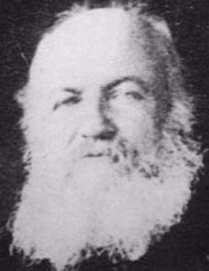SelfDefinition.Org
The Great Secret or Occultism Unveiled
Éliphas Lévi
[ pages in process ]
(1810-1875)

Book III, Chapter XVIThe Agony of Solomon
Español: ../libro-3-capitulo-16.htm
Faith is one of the powers of youth and doubt is a symptom of senility would be no price to pay for a share of love.'? Alas! now read this in 'Ecclesiastes'; `I have found a man in a thousand, but not one outstanding realized with a shock one day that his heir would not carry on his work. Doubt entered his heart and with the doubt a profound despair. laugh'. Thus it was laughter and happiness which Jesus came to promise mankind. The apostle Paul wrote to his converts, Rejoice evermore; sempergaudite.' The wise man weeps tears, who ate and drank with the outcasts of pharisaism (so much so that it was said of Him, `This man is a glutton and a winebibber'), who tenderly loved Saint John and the family of Lazarus, who tolerated Saint Peter, healed the sick and fed the multitudes whose resources He multiplied in loving miracles? In what respect does this life resemble that of a Trappist or a Stylite, and how dared the author of a celebrated treatise which recommended isolation and concentration on oneself to call such a book The Imitation of Jesus Christ? To live in others, with others and for others is the secret of love and of eternal life. It is also that of everlasting youth. 'If you do not become as little children' said the Master, 'you will not enter the Kingdom of Heaven'. To love is to live in those whom one loves, it is to think their thoughts, fathom their desires, share their affections; the more one loves the more one's own life is enlarged. The man who loves is not alone and his existence is in many places at once; his name is family, fatherland, humanity. He talks baby talk and plays with the children, joins in the enthusiasms of youth, holds a rational discussion with the middle-aged and clasps the hand of the old. Solomon had lost his feelings of love when he wrote 'Ecclesiastes' and the decrepitude of his heart had plunged him into blindness of spirit. This book is the agony of a sublime spirit which is being extinguished for lack of a supply of love. It is as sad as the solitary genius of Chateaubriand, as the poems of the nineteenth century. And yet, the nineteenth century produced Victor Hugo, who is the living proof* of the things I have just been propounding. This man, who was egotistical to begin with, was old in his youth, and then, when his hair turned white he embraced love and became young again. How he loves children! How he respires all the vigour and all the divine follies of youth! What a grand pantheism of love there is in his last poems! He has the universal faith of Goethe and the philosophical range of Spinoza. He is Rabelais and Shakespeare. - Victor Hugo, you are a great magician without knowing it and you have had more success in finding the secret of eternal life than poor Solomon! * In 1868, when this was written. Victor Hugo 1802-1885.